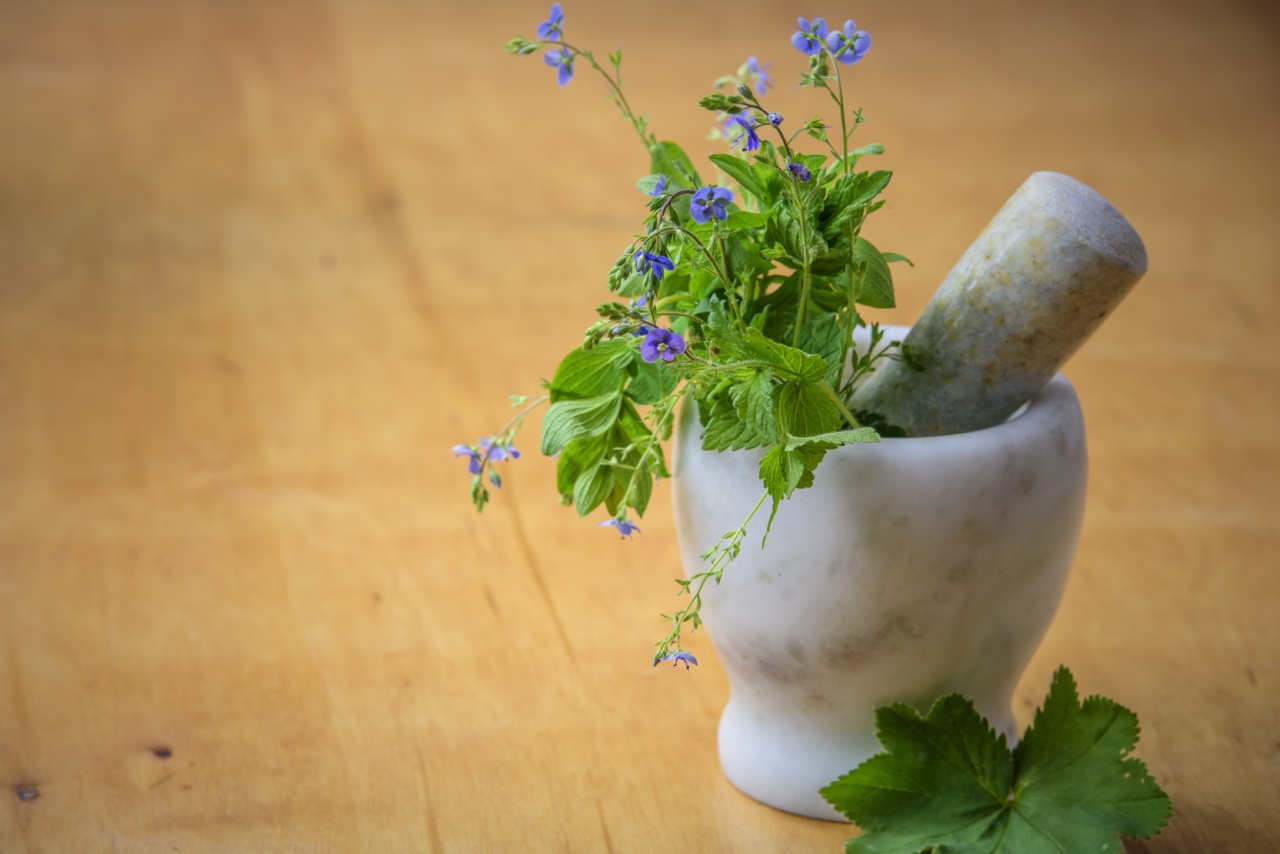For centuries, herbs have been used for their medicinal properties in various cultures around the world. These powerful plants possess healing properties that can help improve our overall health and well-being.
In this article, we will explore some of the most effective healing herbs that you can incorporate into your daily routine to promote a healthier lifestyle.
1. Turmeric
Turmeric is a vibrant yellow spice that is widely known for its anti-inflammatory properties. It contains a compound called curcumin, which has been found to help reduce pain and inflammation in conditions such as arthritis.
Turmeric also supports heart health, improves digestion, and boosts the immune system.
2. Ginger
Ginger is a powerful herb that is commonly used to aid digestion and relieve nausea. It is also known for its anti-inflammatory properties and can help reduce muscle pain and soreness.
Ginger tea or ginger supplements are popular ways to incorporate this herb into your daily routine.
3. Garlic
Garlic is not only a flavorful addition to your dishes but also a potent medicinal herb. It contains compounds that have been shown to reduce high blood pressure and improve cardiovascular health.
Garlic also has antimicrobial and immune-boosting properties, making it a great herb for fighting off infections.
4. Echinacea
Echinacea is a popular herb that is often used for its immune-boosting properties. It can help prevent and reduce the severity of the common cold and other respiratory infections.
Echinacea is available in various forms, including teas, tinctures, and supplements.
5. Chamomile
Chamomile is a gentle herb that is commonly used to promote relaxation and improve sleep quality. It has calming properties that can help reduce anxiety and stress. Chamomile tea is a popular bedtime drink that can help you unwind after a long day.
6. Peppermint
Peppermint is a cooling herb that has a variety of health benefits. It can help relieve digestive discomfort, such as bloating and indigestion. Peppermint tea or inhaling the aroma of peppermint oil can also provide relief from headaches and migraines.
7. Lavender
Lavender is a fragrant herb that is commonly used for its calming and relaxing effects. It can help reduce anxiety and promote better sleep. Lavender essential oil can be added to baths or diffused in the air to create a soothing environment.
8. Ginseng
Ginseng is a popular herb in traditional Chinese medicine known for its energy-boosting properties. It can help improve mental clarity and physical endurance. Ginseng supplements are commonly used to combat fatigue and enhance overall vitality.
9. St. John’s Wort
St. John’s Wort is a herb that is often used as a natural remedy for depression and mood disorders. It contains compounds that can help increase serotonin levels, which are responsible for regulating mood.
However, it is important to consult a healthcare professional before using St. John’s Wort, as it may interact with certain medications.
10. Ashwagandha
Ashwagandha is an adaptogenic herb that helps the body cope with stress and anxiety. It supports adrenal health and can improve both physical and mental performance. Ashwagandha supplements are commonly used to promote relaxation and overall well-being.
Incorporating these healing herbs into your daily routine can provide a natural and effective way to support your overall health.
Whether you choose to enjoy them in teas, incorporate them into your cooking, or take them as supplements, these herbs have the potential to improve your well-being and enhance your quality of life.






























